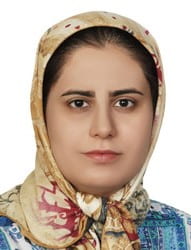 Assistant Professor Leili Shahriyari from the Department of Mathematics will present at the IMSE seminar on today, April 15, 2019 at 1:15pm in Nedderman Hall, Room 105. Dr. Shahriyari’s presentation title, abstract, and biographical sketch are below.
Assistant Professor Leili Shahriyari from the Department of Mathematics will present at the IMSE seminar on today, April 15, 2019 at 1:15pm in Nedderman Hall, Room 105. Dr. Shahriyari’s presentation title, abstract, and biographical sketch are below.
Title: Data-Driven Models for Discovery of Effective Personalized Cancer Treatments
Author: Leili Shahriyari
Location: Nedderman Hall Room 105
Date: Monday, April 15, 2019
Time: 1:15pm
Abstract: Carcinogenesis is a complex stochastic evolutionary process. One of the key components of this process is evolving tumors, which interact with and manipulate their surrounding microenvironment in a dynamic spatio-temporal manner. Recently, several computational models have been developed to investigate such a complex phenomenon and to find potential therapeutic targets. In this talk, we present novel computational models to gain some insight about the evolutionary dynamics of cancer. Furthermore, we propose an innovative framework to systematically employ a combination of mathematical methods and bioinformatics techniques to arrive at unique personalized targeted therapies for cancer patients.
Bio: Leili has a Ph.D. degree in Mathematics and an M.S.E. degree in Computer Science from Johns Hopkins University (JHU). She studied Computer Science with a specific focus machine learning (ML) and data science, and Mathematics with focus on differential geometry. She conducted her first postdoctoral training in computational biology at the University of California Irvine (UCI). At UCI, she developed stochastic models to improve our understanding of cell dynamics during tumorigenesis and improved an artificial neural network model for obtaining gene regulatory networks. During her second postdoctoral training, as an NSF/MBI funded postdoc fellow at the Mathematical Biosciences Institute (MBI), she pursued an independent research program and established collaboration with biologists, physicians, and mathematicians. She is currently an assistant professor of Data Science at the University of Texas at Arlington, where she has been awarded STARs grant. Her lab, currently with three PhD, one Master, and four Undergraduate students, develops innovative frameworks to systematically employ a combination of machine learning and statistical methods as well as mathematical techniques to arrive at unique personalized therapies.